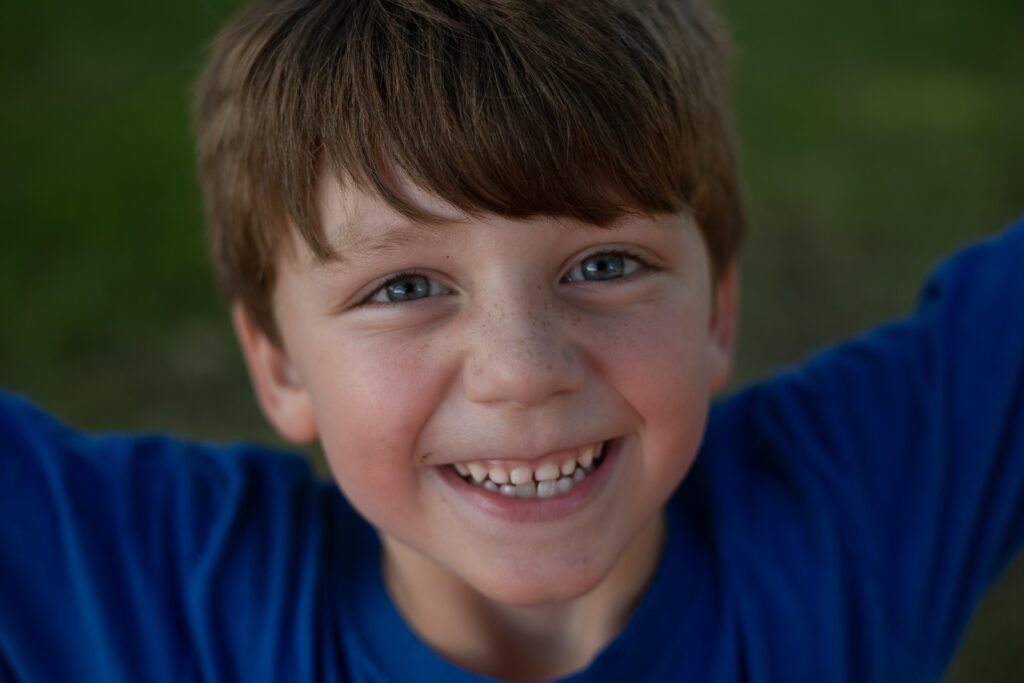
If you brush and floss your teeth every day, you’ll have a healthy mouth, right? Not necessarily. For many adults and children, poor oral health can be a sign of a bigger problem or a systemic disease. In young children, it’s important to know if something else is causing a problem with the teeth, the mouth, or the gums, and if it’s hindering their development.
A holistic pediatric dentist goes beyond a child’s teeth to determine what their true health problem is and suggests treatments that take a whole-body approach.
What is holistic dentistry?
Holistic dentistry is taking a full-body approach to dental care. In children, it concerns overall wellness and prioritizes development through safe, natural, healthy, and minimally invasive methods. Holistic pediatric dentistry recognizes that a child’s teeth are more than just teeth. They’re the window to health, and can tell a story about well-being — if you know what to look for.
A holistic approach to pediatric dentistry is also proactive. It involves close monitoring to ensure a child’s face and teeth are developing properly, without risk of breathing, sleeping, or eating problems. Conventional pediatric dentistry typically points to poor dental hygiene practices as the root cause of oral health problems.
Holistic pediatric dentistry looks at other factors when getting to the bottom of a dental health problem:
- Diet
- Sleeping patterns
- Activity level
- Lifestyle habits
Holistic and traditional pediatric dentistry also differ in treatment options. A dentist that takes a holistic approach might counsel nutritional or lifestyle changes or work with parents and kids to develop a comprehensive treatment plan.
Diseases that are linked to oral health
There’s a clear connection between oral health and quality of life, as many systemic diseases have oral symptoms or complications. The mouth is also a portal of entry into the rest of the body and can be the site of disease for some infections.
Here are some diseases and health issues that may have a link to oral health:
- Diabetes: People with diabetes are at a greater risk of periodontal (gum) disease.
- Acid reflux: With acid reflux, stomach acids end up in the esophagus and oral cavity. If it’s nocturnal reflux, can stay there for hours, damaging the oral cavity.
- Frequent vomiting: Like acid reflux, vomiting also pushes stomach acids to the mouth, which causes damage.
- Heart disease and stroke: The same bacteria that cause periodontitis and gingivitis can travel through the bloodstream, weakening blood vessels in the heart and brain.
- Kidney disease: Kidney disease weakens the immune system, which makes someone more prone to severe gum disease infections.
- Rheumatoid arthritis: It’s possible that the bacteria that cause inflammation in dental disease may also prompt the onset of rheumatoid arthritis.
- Lupus: Lupus attacks the glands that produce saliva, and those with lupus are more likely to struggle with gum disease.
Poor dental health can be caused by so much more than bad hygiene habits. There could be another systemic disease contributing to dental problems, or the medicines used to treat a systemic disease could create complications in the oral cavity. By looking at the broader picture, a holistic pediatric dentist can determine what those complications might be.

Examples of holistic methods in pediatric dentistry
1. Advanced technology for minimally invasive treatments
One of the hallmarks of holistic pediatric dentistry is minimally invasive procedures. When treating a child’s cavity, for example, a dentist can rely on modern technology to carry out a conservative treatment that maintains a child’s physical and emotional wellbeing.
2. Biocompatible materials for cavities
Using non-toxic materials to fill cavities is crucial for a child’s long-term health. Rather than apply harmful chemicals like mercury, a holistic dentist can use biocompatible materials that are BPA-free, gluten-free, and boosted with vitamin D.
3. Myofunctional orthodontics
Myofunctional orthodontics rely on removable appliances rather than uncomfortable braces to correct unbalanced facial musculature and promote a better bite and breathing. The goal of myofunctional orthodontics is to guide proper facial growth and development.
4. Non-surgical solutions for infant tongue ties and lip ties
A tongue or lip tie is when a baby’s lingual frenulum (a band of tissue connecting the tongue to the floor of the mouth) or labial frenulum (a band of tissue connecting the lip to the gum in front of the teeth) is too short, thick, or tight, and prevents a baby from breastfeeding, amongst other issues. A holistic pediatric dentist can use a gentle, non-surgical method to correct a tongue or lip tie and reduce a baby’s discomfort and stimulate the natural flow of blood.
5. Digital X-rays
Using digital X-rays rather than a traditional X-ray machine reduces radiation dosage to patients by 80–90%. Not all tooth decay is visible, and X-rays help dentists see areas in between the teeth and check for problems.
6. Diet recommendations
Traditionally, pediatric dentists don’t provide comprehensive nutritional recommendations other than advising to stay away from sugar. A holistic approach would take the child’s entire diet into account and consider how they might get the vital nutrients they need for both their oral and overall health.
Caring for the whole child
When it comes down to it, holistic pediatric dentists are concerned with your child’s entire wellbeing, not just their oral health. They’re specialists in how the teeth, gums, mouth, and jaw may impact or be impacted by health issues in other parts of the body.
At Ashburn Children’s Dentistry, we have been growing healthy faces for over 16 years. We believe that teeth health can have a huge impact on children’s overall well being — physically, socially, and academically. We aim to diagnose and resolve the root of any dental issue, rather than treat the symptoms alone.
Contact us for a virtual consultation today.
Testimonials
My four month old was having excessive spit up and reflux issues, and I was also experiencing a painful latch when breastfeeding with her. We love Dr. Lynda’s calm and nurturing demeanor with our babies. You can tell she is a natural with babies and children.
We love that Dr. Lynda is a functional medicine/ holistic based medical professional which is hard to find!
Obering



